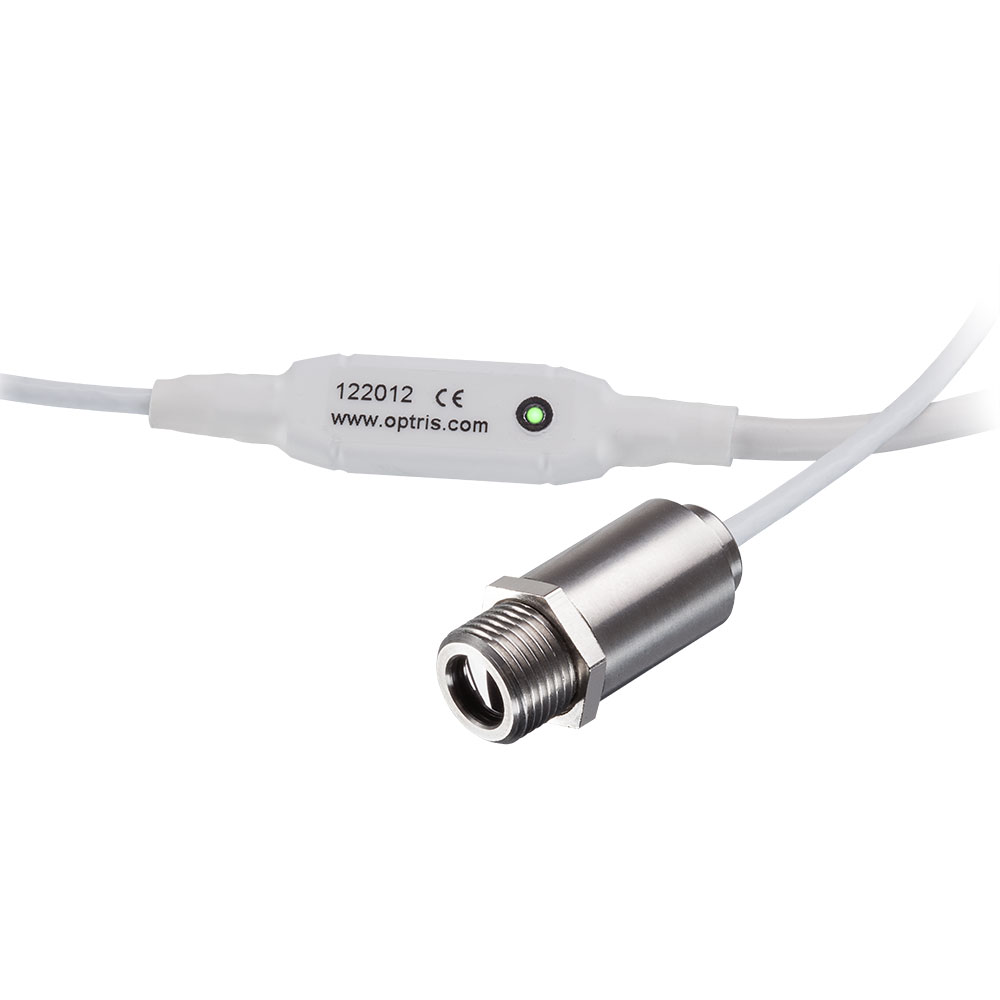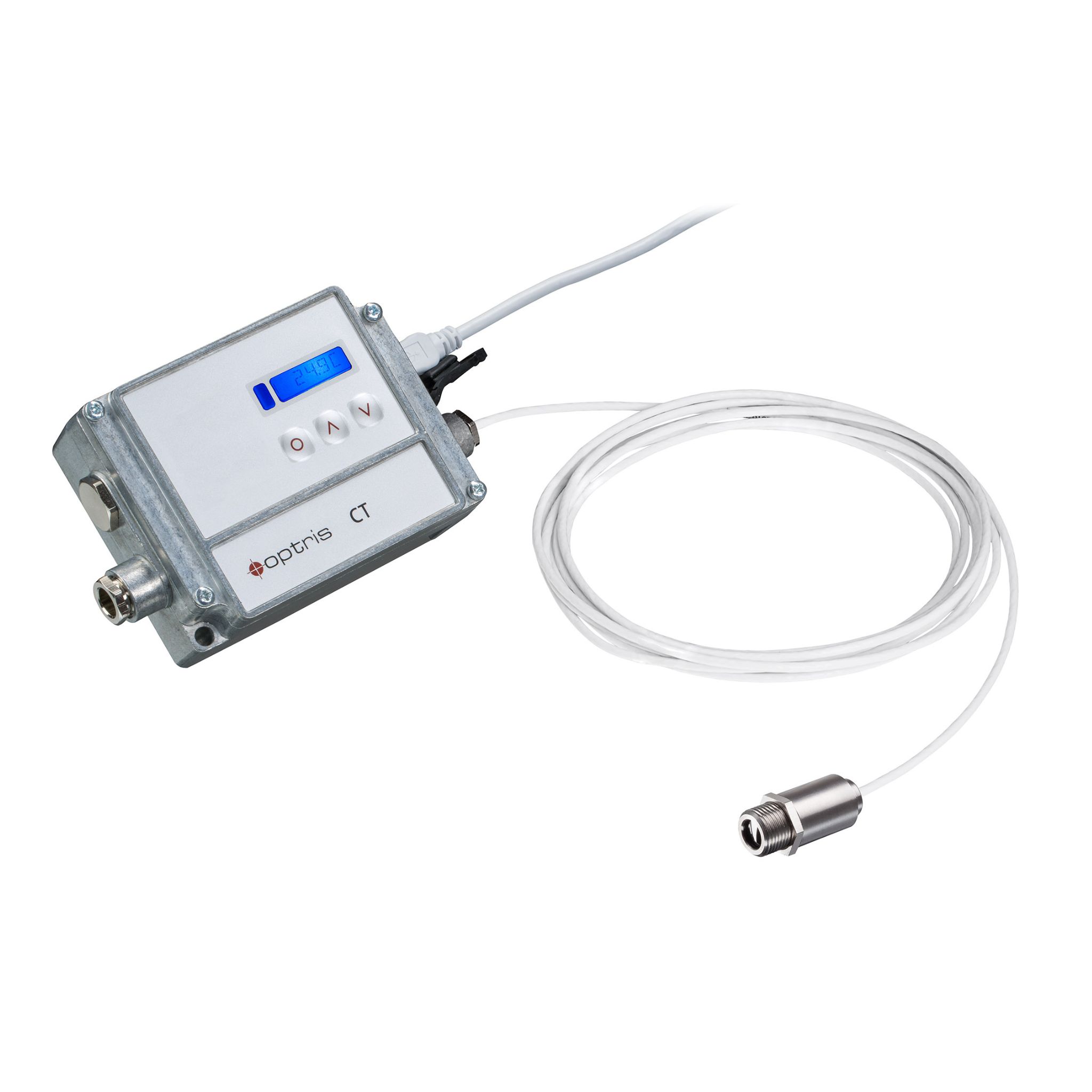Temperature Sensors for Oil and Gas
Temperature Sensors for Petrochemical, Oil and Gas
At Process Parameters, we offer several temperature sensors for the oil and gas industry. Our products are suitable for a range of processes in the extraction, production, refining and distribution of oil, gas and other petrochemicals.
When it comes to the oil and gas industry, accurate temperature measurement is critical for ensuring safety, efficiency, and compliance. Infrared temperature sensors, particularly pyrometers, are ideal for non-contact measurement in these challenging environments.
Here’s a guide to help you choose the right temperature sensors for your oil and gas applications.
Take a look at our product portfolio to see our range of industrial temperature sensors. For more information on sensors for oil and gas applications please contact us.
Send An EnquiryGeneral Purpose IR Thermometers
General Purpose IR Thermometers
General Purpose IR Thermometers
Selecting the Right Temperature Sensors for Oil and Gas Applications
This guide provides a framework for making informed decisions about sensor selection, an essential step in maintaining safety and operational efficiency.
If you need assistance or would like to discuss your specific applications, please reach out. We are here to help you find the best temperature measurement solutions for your needs.
Choosing the Right Sensor for Oil and Gas: 8 Key Considerations
1. Understanding the Measurement Environment
In the oil and gas sector, temperature sensors often operate in extreme conditions, including high pressures, corrosive substances, and potential exposure to flammable materials. Selecting sensors that can withstand these harsh environments is crucial. Look for sensors with rugged housing and suitable environmental ratings to ensure longevity and reliability.
2. Choosing the Right Sensor for the Material
Different materials require specific sensor types. For instance, pyrometers measure the thermal radiation emitted by surfaces to provide accurate temperature readings without direct contact. When measuring metal surfaces or liquids, consider the emissivity settings; oil and gas materials often exhibit varying emissivity.
If your application involves measuring the temperature of crude oil or natural gas, ensure the selected sensor can handle the specific characteristics of these substances, including their emissivity and reflective properties.
See also:
- Choosing an Infrared Pyrometer for Plastics – 8 Important Things to Know
- Choosing an Infrared Pyrometer for Metals – 8 Important Things to Know
3. Size and Distance to Measure
The size of the object being measured influences sensor selection. The measuring spot should be smaller than the target area for accurate readings. Infrared sensors come with various optical resolutions, allowing you to select sensors with small measuring spots for large distances, essential for pipeline monitoring and other extensive applications.
4. Consider the Ambient Conditions
Ambient temperatures can significantly affect sensor performance. Ensure your infrared pyrometer can operate effectively in the expected temperature range. Some sensors can be equipped with cooling systems to maintain operational limits. Additionally, thermal shock can impact smaller sensors, so consider models with adequate thermal mass or protective measures.
5. Lens Contamination from Dust and Moisture
The presence of dust, debris, or moisture can obscure the sensor lens, leading to inaccurate readings. In oil and gas environments, where dust and vapour can accumulate, it is beneficial to use sensors with protective measures, such as air purge collars, to keep the lens clean. This is particularly important in outdoor or offshore applications.
6. Aiming Accuracy
Accurate aiming is essential for reliable temperature measurements. For larger components, aiming may be straightforward, but in complex setups, such as piping systems, precise alignment is critical. Consider using sensors with laser aiming systems to ensure proper targeting, or models equipped with video aiming for enhanced precision.
7. Integration with Existing Systems
Ensure that the sensor you choose can easily integrate with your existing measurement and control systems. Look for standard output signals, such as mA or voltage signals.
In some cases, Optris sensors are able to provide a thermocouple output so if you replace an existing thermocouple sensor, simply wire up your new IR sensor and no other configuration is required.
Many Optris sensors have the capability to fit an interface card which upgrades the capabilities of the sensor. This can be USB or Ethernet for communication with a PC, or ProfiBus or CANBus for industrial communication.
8. Response Speed for Real-Time Monitoring
In the fast-paced oil and gas industry, quick response times can be crucial. Infrared sensors generally offer faster response times than contact-based sensors, with options available that respond in milliseconds. For processes that require immediate temperature feedback, select sensors known for their rapid response capabilities.
Our expert team is here to help you select the perfect temperature sensor for your oil, gas and petrochemical applications. We offer personalised guidance, competitive pricing, and exceptional customer support.
Send An EnquiryThe Importance of Accuracy in Oil & Gas
- Safety Enhancement: Accurate monitoring helps ensure safety in hazardous environments.
- Process Efficiency: Precise measurements lead to improved operational efficiency and product quality.
- Cost Reduction: Reliable data minimises maintenance costs and reduces downtime.
- Regulatory Compliance: Adhering to accurate measurement practices supports compliance with industry regulations.
Essential Features for Oil and Gas Sensors
For effective use in oil and gas applications, sensors must possess one or more of the following characteristics:
- Waterproof/Submersible: Designed to function in wet conditions.
- High-Temperature Tolerance: Capable of withstanding extremely high temperatures.
- Dust Resistance: Rated for protection against dust (IP rated).
- Explosion-Proof/Intrinsically Safe: Built to prevent ignition in hazardous environments.
- Corrosion Resistance: Able to resist damage from corrosive elements.
Our sensors are engineered to endure extreme temperatures, corrosive substances, and hazardous conditions, guaranteeing dependable performance and operator safety. Each sensor undergoes rigorous testing to meet stringent explosion-proof standards.
View Our RangeOur portfolio also includes pressure sensors and transmitters, for enhanced efficiency and space-saving.
Which Temperature Sensor is Used in the Oil and Gas Industry?
RTD PT100 Sensors are widely utilised in the petrochemical, oil, and gas industries.
PT100 sensors measure temperature in extreme conditions. Their high accuracy, stability, and resistance to vibration and electromagnetic interference make them ideal for rugged environments.
To ensure reliability, PT100 sensors are typically housed in robust stainless steel or Inconel sheaths, protecting against corrosion and mechanical damage. They may also feature a protective coating to guard against chemical exposure.
High Accuracy Temperature Sensors for Oil & Gas Industry Applications
The oil and gas industry relies heavily on sensors for continuous monitoring and measurement to prevent unscheduled disruptions and maintenance issues.
This sector presents unique challenges, necessitating sensors that are not only highly accurate but also dependable and safe for use.
By leveraging our engineering expertise alongside our design and manufacturing capabilities, we deliver sensors specifically suited for these demanding environments.
This article serves as a guide, but our free technical assistance is always available for further support.
If you need help selecting an infrared temperature sensor, please reach out to us. We’re here to discuss your application and assist you with your product choices.
Email us at sales@processparameters.co.uk, call 01628 778788, or complete our online enquiry form.
Send An EnquiryGeneral Purpose IR Thermometers
General Purpose IR Thermometers
General Purpose IR Thermometers
Related Guides:
- Temperature Sensors for Food Production
- What is a Pyrometer?
- Comparing Contact and Non-Contact Temperature Sensors
- How do Infrared Thermometers Work?
- How Accurate are Infrared Sensors?
- How Can You Improve Efficiency With Infrared Cameras?
- What Is A Temperature Sensor?
- How Do Thermal Imaging Cameras Work?
- 5 Benefits & Applications of Thermal Imaging Cameras
- 5 Different Types of Thermal Sensors





